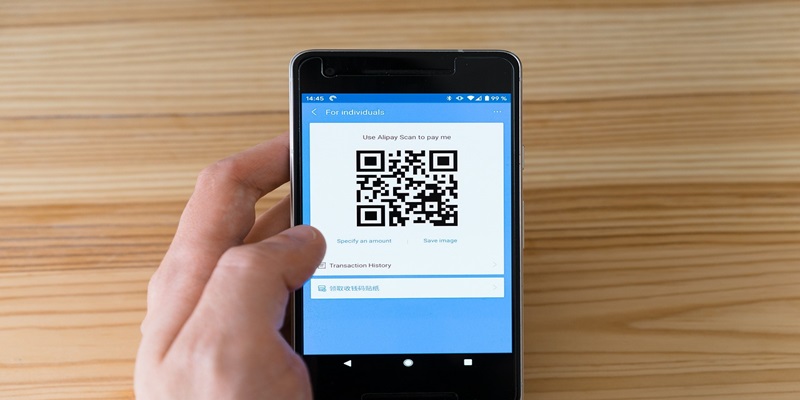White-Label : Building Custom Payment Experiences

The way businesses process payments has undergone a seismic shift. From traditional cash registers to digital wallets and online banking, the transformation has been nothing short of revolutionary. In this competitive environment, businesses must not only offer secure and efficient payment methods but also create unique and engaging customer experiences. This is where white-label payment solutions come into play, providing companies with the tools to design tailored payment systems that align with their brand identity and operational needs.
White-label payment solutions represent a significant opportunity for businesses looking to enhance their payment capabilities without the challenges of building a system from scratch. Whether it’s an e-commerce platform aiming to streamline its checkout process or a fintech company offering digital wallets, these solutions cater to a broad spectrum of industries and use cases. By leveraging white-label payment platforms, businesses can focus on their core strengths while delivering exceptional value to their customers.
What Are White-Label Payment Solutions?
White-label payment solutions are pre-built payment platforms or services provided by third-party companies, which can be rebranded and customized by other businesses to suit their needs. These solutions enable businesses to integrate payment processing capabilities into their offerings under their own brand name, creating a cohesive and branded customer experience.
For instance, a business offering an online marketplace can utilize a white-label payment solution to provide buyers and sellers with seamless payment options. Instead of building their payment infrastructure from scratch, they rely on a third-party provider while maintaining full control over the branding and user interface.
Key Features of White-Label Payment Solutions
White-label payment platforms come equipped with a range of features to facilitate smooth payment processing. Some of the most common features include:
Payment Gateway Integration:
Allows businesses to accept payments via multiple channels such as credit cards, debit cards, e-wallets, and bank transfers.
Customizable User Interface:
Enables businesses to design the payment interface to match their brand identity, ensuring a consistent user experience.
Global Payment Support:
Offers support for multiple currencies and cross-border transactions, making it easier for businesses to expand internationally.
Security and Compliance:
Includes robust security measures such as encryption, tokenization, and fraud detection tools, along with compliance with industry standards like PCI DSS.
Analytics and Reporting:
Provides real-time insights and detailed reports on payment activities, enabling businesses to make data-driven decisions.
Recurring Billing and Subscriptions:
Supports subscription-based models and automated recurring payments.
Benefits of White-Label Payment Solutions
Adopting a white-label payment solution offers numerous benefits that make it an attractive choice for businesses of all sizes. Here are some key advantages:
Cost Efficiency
Developing an in-house payment processing system requires significant investment in infrastructure, development, and maintenance. White-label solutions eliminate these costs, allowing businesses to access robust payment technology at a fraction of the price.
Faster Time to Market
Building a custom payment system can take months or even years. With a white-label solution, businesses can quickly launch payment services and start generating revenue without delay.
Enhanced Branding
White-label solutions allow businesses to fully brand the payment platform, ensuring that customers associate the payment experience with their company. This enhances brand loyalty and trust.
Scalability
As businesses grow, their payment needs become more complex. White-label solutions are designed to scale easily, accommodating higher transaction volumes, new payment methods, and additional features.
Focus on Core Competencies
Outsourcing payment processing to a white-label provider allows businesses to concentrate on their core competencies, such as product development and customer service, rather than managing payment technology.
Use Cases of White-Label Payment Solutions
White-label payment solutions cater to a wide range of industries and business models. Here are some common use cases:
E-Commerce Platforms
E-commerce businesses rely heavily on efficient and secure payment systems. A white-label solution enables them to offer multiple payment options, streamline checkout processes, and enhance the overall shopping experience.
SaaS Companies
Software-as-a-Service (SaaS) providers often require subscription billing capabilities. White-label payment solutions simplify recurring billing and provide tools for managing subscriptions.
Financial Institutions
Banks and fintech companies can use white-label solutions to offer digital wallets, mobile payment apps, and other financial services under their brand.
Marketplaces
Online marketplaces need to handle payments between buyers and sellers. White-label solutions provide the infrastructure for secure and efficient transactions, including split payments and escrow services.
Hospitality and Travel
Hotels, airlines, and travel agencies can integrate white-label payment systems to offer seamless booking and payment experiences, supporting multiple currencies and payment methods.
How to Choose the Right White-Label Payment Solution
Selecting the right white-label payment solution is crucial to ensuring a positive customer experience and achieving business goals. Here are some factors to consider:
Customization Options
Look for a provider that offers extensive customization options to align the payment platform with your brand’s identity and specific needs.
Security and Compliance
Ensure the provider adheres to industry standards and regulations, such as PCI DSS compliance, to protect sensitive customer data.
Integration Capabilities
The solution should integrate seamlessly with your existing systems, including your website, mobile app, and accounting software.
Support for Multiple Payment Methods
Choose a provider that supports a wide range of payment methods, including emerging technologies like cryptocurrency.
Scalability
Ensure the solution can scale with your business as it grows, handling increased transaction volumes and supporting additional features.
Customer Support
Reliable customer support is essential to address any issues that may arise with the payment system.
Implementing White-Label Payment Solutions: Best Practices
To maximize the benefits of white-label payment solutions, businesses should follow these best practices:
Define Your Goals
Clearly outline your objectives and expectations from the payment solution. This will help you choose a provider and configure the platform to meet your specific needs.
Test Thoroughly
Conduct rigorous testing before launching the payment system to identify and resolve any issues that could impact user experience.
Train Your Team
Provide training to your staff on how to use and manage the payment system effectively.
Monitor Performance
Use analytics and reporting tools to track the performance of your payment platform and make data-driven improvements.
Stay Updated
Keep up with industry trends and advancements in payment technology to ensure your platform remains competitive.
The Future of White-Label Payment Solutions
White-label payment solutions are expected to become even more sophisticated. Innovations such as artificial intelligence, blockchain, and biometric authentication will likely shape the future of payment systems, offering enhanced security, efficiency, and convenience.
Moreover, the growing demand for personalized customer experiences will drive further customization options in white-label solutions, enabling businesses to create truly unique and engaging payment journeys.
Conclusion
White-label payment solutions empower businesses to build custom payment experiences without the complexities and costs of developing their own systems. By leveraging these solutions, companies can enhance customer satisfaction, improve operational efficiency, and focus on their core competencies.
Adopting a white-label payment solution can be a game-changer for businesses looking to stay competitive and deliver exceptional value to their customers. Whether you’re an e-commerce platform, a SaaS provider, or a financial institution, the right white-label payment solution can help you achieve your goals and drive long-term success.





